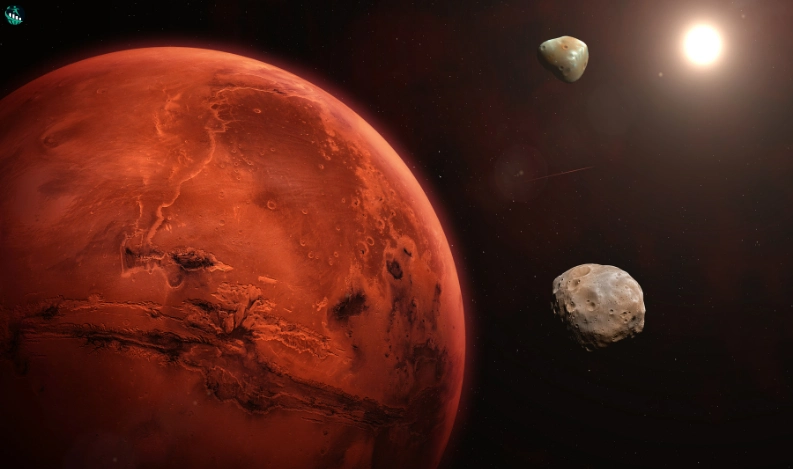
The Decade of Mars: Celebrating the Manned Mission to the Red Planet
Humanity has always been captivated by the mysteries of Mars. From ancient civilizations observing its fiery glow to modern scientists exploring its rocky surface with rovers, the Red Planet has been a symbol of curiosity, ambition, and exploration. The successful manned mission to Mars marks a monumental achievement, ushering in a new era of space exploration and human ingenuity.
The Journey to Mars: A Historical Milestone
The manned mission to Mars represents the culmination of decades of planning, research, and technological advancements. Early Mars exploration began with robotic missions, such as NASA’s Viking landers in the 1970s and the more recent Perseverance rover. These missions provided invaluable data about the Martian atmosphere, geology, and potential for life.
However, sending humans to Mars posed an entirely different set of challenges. Scientists and engineers had to overcome obstacles related to propulsion, radiation protection, life support systems, and long-duration space travel. After years of collaborative efforts by international space agencies, private companies, and researchers, humanity finally succeeded in landing astronauts on Mars.
The First Steps on Martian Soil
The historic moment of the first human footsteps on Martian soil was a culmination of dreams and aspirations shared by millions. The mission, which involved an international team of astronauts, was designed to establish a sustainable presence on Mars. Equipped with advanced habitats, renewable energy systems, and cutting-edge research tools, the astronauts began their work exploring the planet’s surface and studying its resources.
Scientific Breakthroughs from the Mars Mission
The manned mission to Mars has already yielded groundbreaking scientific discoveries:
-
Evidence of Ancient Life: Extensive analysis of Martian rocks and soil has revealed signs of ancient microbial life, offering clues about the planet’s habitable past.
-
Water Resources: The discovery of subsurface water reserves has significant implications for future colonization efforts, providing a vital resource for sustaining human life and producing fuel.
-
Climate Studies: Understanding the planet’s climate history is helping scientists draw parallels with Earth’s environmental changes and better predict the future of our own planet.
-
Technological Innovations: The mission has spurred advancements in robotics, artificial intelligence, and sustainable technologies, many of which have applications on Earth.
Mars Colonization: A Vision for the Future
The manned mission to Mars is not just about exploration—it’s about laying the groundwork for a sustainable human presence on the Red Planet. Efforts are already underway to construct habitats that can withstand harsh Martian conditions, develop agriculture techniques for growing food, and utilize local resources for building infrastructure.
Colonizing Mars represents a giant leap forward in ensuring humanity’s survival. By becoming a multi-planetary species, we can mitigate the risks posed by potential global catastrophes on Earth. Moreover, the challenges of living on Mars inspire innovation, resilience, and a deeper understanding of what it means to be human.
International Collaboration: A Unified Effort
The success of the Mars mission highlights the power of international collaboration. Space agencies like NASA, ESA, Roscosmos, and private companies such as SpaceX have worked together to pool resources, knowledge, and expertise. This mission serves as a testament to what humanity can achieve when united by a common goal.
Inspiring the Next Generation
The manned mission to Mars has reignited public interest in space exploration. Educational programs and outreach initiatives are inspiring young minds to pursue careers in science, technology, engineering, and mathematics (STEM). The sight of astronauts walking on Martian soil has become a symbol of possibility, encouraging the next generation to dream big and push the boundaries of what is possible.
Challenges Ahead
While the mission has been a remarkable success, the journey is far from over. Challenges such as maintaining astronaut health, addressing psychological impacts of isolation, and developing efficient transportation systems for Earth-Mars travel remain at the forefront of research. Overcoming these hurdles will be essential for ensuring the long-term sustainability of human life on Mars.
Conclusion
The manned mission to Mars is more than a technological triumph; it is a testament to the human spirit. It represents our innate desire to explore, innovate, and transcend boundaries. As we celebrate this historic achievement, we also look to the future with hope and determination, knowing that the Red Planet is just the beginning of our journey into the cosmos.
By embracing the challenges and opportunities of Mars exploration, humanity takes its first bold steps toward a multi-planetary existence. The Decade of Mars is not just a chapter in history—it is the beginning of a new era for humankind, one that will shape the destiny of generations to come.
Also Read:-



Recent Comments:
No comments yet.